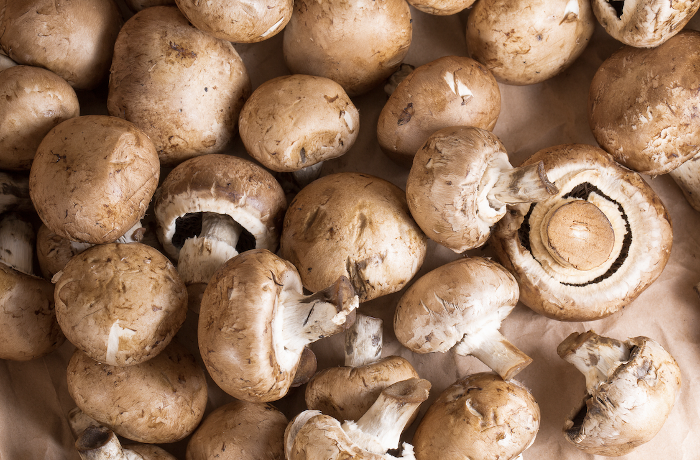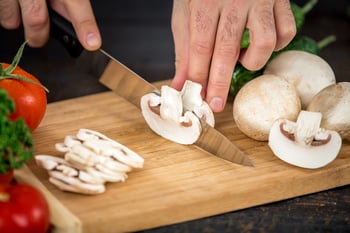In the world of food and nutrition, few myths are as constant as the one that puts mushrooms into the vegetable category. However, let's clear up this confusion right away: mushrooms are no ordinary vegetables.
In fact, they belong to their own amazing kingdom known as Fungi. This distinction is not just a matter of scientific classification — it's a representation of their unique ecological role and the surprising ways they impact our lives.
The Kingdom of Fungi: A Realm of Their Own
Mushrooms are not plants, and they certainly aren’t vegetables — they belong to the Fungi kingdom. Unlike plants, mushrooms don't photosynthesize. Instead, they play a crucial role in the ecosystem as decomposers. This means that they break down organic matter and recycle nutrients back into the soil, which helps to maintain the health of ecosystems.
The Ecological Wonder of Mushrooms
Picture a forest floor where fallen leaves, trees, and other organic materials are breaking down. Mushrooms are the underappreciated heroes of this process. They break down these materials, turning them into rich compost that supports new plant growth. This natural recycling process is not just happening in distant forests, it can occur right in your own backyard, at your local park, or along the trails you hike.
Mushroom cultivation itself is a wonder of ecological efficiency.
Modern mushroom farms often recycle agricultural byproducts like straw and cotton plant residues to grow mushrooms on. Once the mushrooms have been harvested, the remaining compost is rich in nitrogen and other essential nutrients and is often used as fertilizer by local farmers.
This closed-loop system not only reduces waste but also enhances soil fertility, thereby creating a sustainable cycle that benefits both the environment and the agriculture industry.
Everyday Encounters with Mushroom Magic
The wonders of mushrooms extend beyond their ecological role.
For instance, certain types of fungi are being harnessed to take on concerning environmental issues. Mycelium, the root-like structure of mushrooms, has been shown to digest plastics, breaking them down into less harmful substances. Imagine that, mushrooms turning plastic waste into compost! This incredible ability could revolutionize waste management and reduce the environmental footprint of plastic products.
Moreover, mycelium is making headlines in additional unexpected areas. For example, MyFOREST FOODS has created a new substitute for bacon named MyBACON. By harnessing the power of mycelium, this innovative product promises a delicious, environmentally friendly solution that appeals to both vegans and meat lovers alike.
The Magical World Right Under Our Feet
Though extremely delicious, mushrooms are not just for your dinner plate; they’re essential to the health of our planet. They rule their own special kingdom with ecological prowess, transforming waste into nourishment.
When you spot a mushroom at your local park or on a trail, remember that you’re witnessing a small but mighty organism playing a big role in our world. However, you should always be safe and never pick up any wild mushrooms in the field without first doing your research and consult professional mycologists with any questions.
So, the next time someone tries to tell you mushrooms are just vegetables, you can enlighten them with the truth: Mushrooms are a unique and essential part of our ecosystem. Even if they are categorized with the vegetables at your local grocery store — mushrooms have their own identity and brilliantly stand out from the rest!







